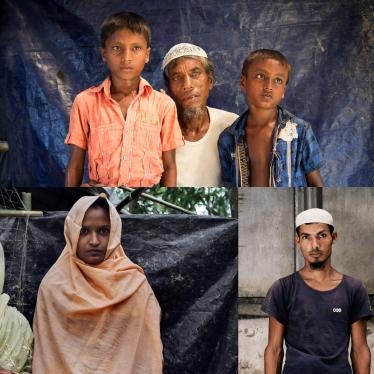Aging mass murderers continue to live freely in Cambodia. This month Nuon Chea, "Brother No. 2" and deputy to the Khmer Rouge leader Pol Pot, finally stepped into a courtroom. Among other crimes, researchers have linked him to the Tuol Sleng torture center where more than 16,000 men, women and children went in and only seven came out alive.
Two million Cambodians died from execution, starvation and disease during the rule of Pol Pot, Nuon Chea and others from 1975 to 1979.
But Nuon Chea was not on trial this month for his role in Khmer Rouge crimes. He made a brief appearance to testify in defense of another senior Khmer Rouge figure, on trial for the 1994 deaths of three foreign backpackers. He then left, a free man with a police escort, and returned home.
Cambodians have grown used to the political nature of justice in their country, where government officials do not hesitate to tell judges how to decide cases and prosecutors follow orders instead of evidence.
Last week the UN General Assembly adopted a resolution requesting Secretary-General Kofi Annan to "resume negotiations" with the Cambodian government on the formation of a "mixed tribunal" to try senior leaders of the Khmer Rouge. But 30 members abstained, including Canada and most members of the European Union. They were concerned about Cambodia's apparent lack of commitment.
The United Nations withdrew from negotiations in February after concluding that the government was not serious about meeting minimum international standards. It correctly took the position that a tribunal law signed in August 2001 was structurally unsound and fell short of UN criteria.
The law would create a court with a majority of Cambodian judges and a minority of international judges. The law fails to allow for an independent prosecutor and omits provisions for adequate protection of witnesses. After passage of the law, the United Nations asked for "concrete signs that our minimum requirements for a fair and credible trial will be met." These were not forthcoming.
But instead of supporting the United Nations in sticking to its principles the same principles that the international community demanded when creating the ad hoc tribunals for the former Yugoslavia and Rwanda supporters of last week's resolution, including Japan, France, the United States and Australia, have pressured the UN to accept an agreement without adequate safeguards.
Cambodian human rights advocates have repeatedly expressed concern that an agreement for its own sake will fail to bring Khmer Rouge leaders to justice or help Cambodians learn the truth about why Pol Pot, Nuon Chea and others led their country into a dark period of tyranny.
There is now a risk that the United Nations will be dragged into a process that will create a sham tribunal. A tribunal that doesn't meet international standards would be an enormous setback for the Cambodian people.
It would also damage the credibility of the United Nations and lower international standards for international justice. In the future, why would countries accept the rigorous models used for the crimes in the former Yugoslavia and Rwanda when they could demand the soft "Cambodian model?"
Kofi Annan has invited a Cambodian delegation to New York on Jan. 6 to prepare for negotiations. But the UN must not compromise on basic principles. Member states should refrain from exerting any further political pressure on UN officials and should instead send clear signals to the Cambodian government that it must meet the UN's terms.
Mike Jendrzecjzyk is Washington Director of Human Rights Watch's Asia Division.






